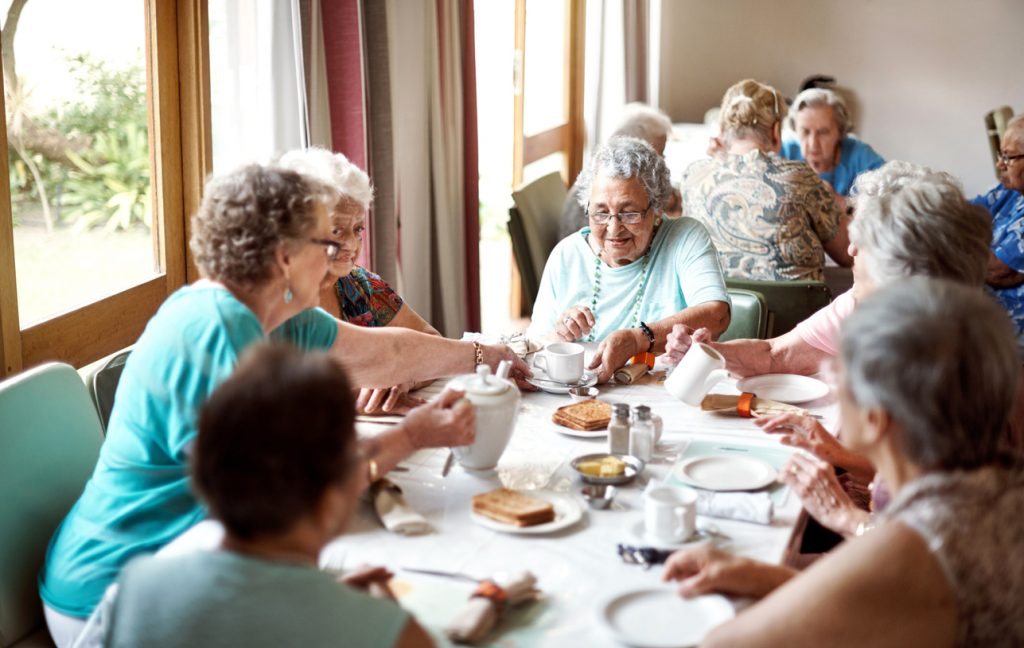Oasis Senior Supportive Living: A Model for Active Aging-in-Place

Award Date: 2018
Project Lead(s): Catherine Donnelly
Project Title: Oasis Senior Supportive Living: A Model for Active Aging-in-Place
What is the issue?
Staying physically active and maintaining social networks and connections is essential for healthy aging. However, many seniors living in the community do not get enough exercise and live in isolation.
A group of older adults living in an apartment building in Kingston, Ontario, created the Oasis program to address social isolation. Landlords provide meeting space in apartment buildings free of charge. An onsite coordinator works with members to identify, plan, and hold communal meals and physical and social activities.
The program effectively decreased social isolation, increased physical activity, improved physical performance, and resulted in less frequent emergency room visits, shorter hospital stays, fewer visits to family doctors, and less reliance on home care supports. Oasis members who moved to long-term care were able to stay at home seven months longer than non-members.
What did we do?
We developed a manual for expanding the Oasis model and launched new Oasis communities in Belleville (Quinte West), London, and a new site in Kingston. We conducted the first study to evaluate the impact of programming in these naturally occurring retirement communities. Through qualitative interviews and focus groups, we assessed social connection, mobility and risk of falls, cognitive health, nutrition, physical activity, participation in meaningful activities, quality of life, and utilization of healthcare resources. We also developed partnerships with community organizations, including the Alzheimer Society, Canadian Hearing Services, the CNIB Foundation, public health authorities, primary care teams, VON, pharmacists, dietitians, public libraries, and food security and rescue agencies.
What did we find?
The Oasis program improved members’ health and well-being and reduced their use of healthcare resources. Members enjoyed forming new social networks and gained a strong sense of community. In London, Ontario, the regional health authority has committed one year of funding to support an onsite coordinator. We are currently seeking funding for other sites.

